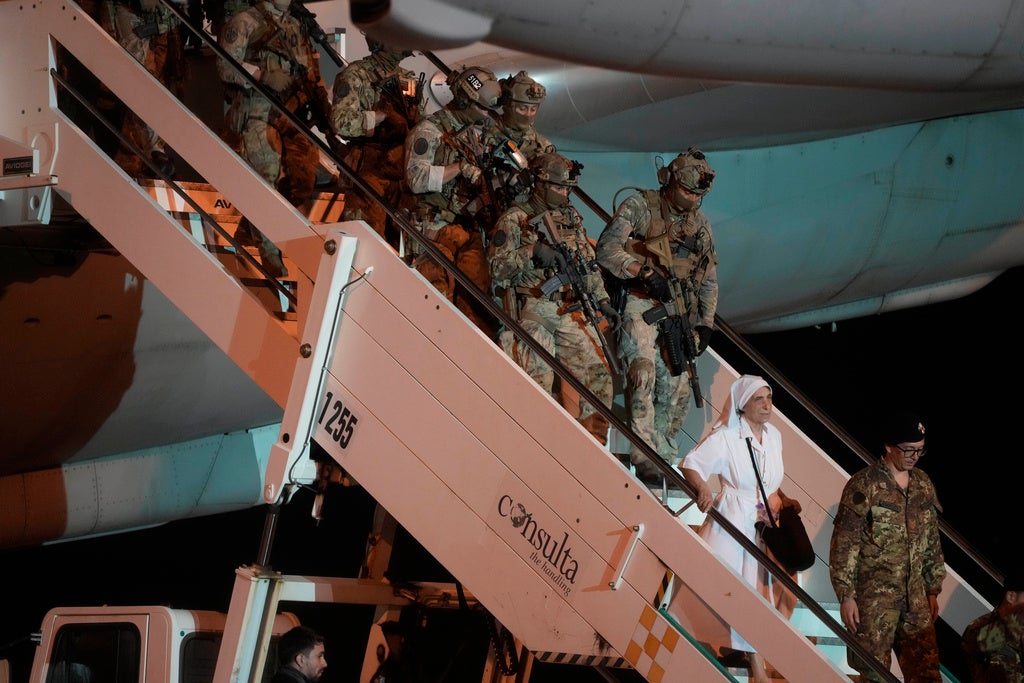
A shaky cease-fire is underway in Sudan, after days of violence.
U.S. special forces rescued Americans at the embassy in the capital, Khartoum, and other nations’ governments are evacuating citizens as well.
While the U.S. helped negotiate the three-day pause, there’s concern outside influences could help re-ignite fighting.
The Pentagon is evaluating multiple options to facilitate evacuations of Americans. At least 16,000 Americans, many of them dual-citizens, remain in the country, and getting them out may require troops on the ground.
Pentagon Spokesperson, Brig. Gen. Pat Ryder, announced that “U.S. Africa Command and the Department of Defense continue to work closely with the State Department, which has the lead for helping American citizens wishing to depart Sudan.”
As two U.S. Navy ships remain on standby off the coast, the Pentagon is also providing support for those traveling by land to reach the evacuation points.
National Security Advisor Jake Sullivan explained, “We have placed ISR assets, intelligence, surveillance and reconnaissance assets, over the land evacuation route to help facilitate safe travel by land from Khartoum to the port of Sudan. And we have started to see a more regular pattern of convoys begin to arrive.
The White House stresses there are not “currently” American boots on the ground in Sudan, although before the cease-fire declaration – U.S. special forces, including Seal Team Six – landed briefly in country to save Americans at the U.S. Embassy. That operation: successful.
Ryder said, “U.S. forces carried out this mission with precision and professionalism.”
Meanwhile, other countries are also conducting large-scale evacuations and cooperating with each other to get citizens out.
Simon Fraser former head of the U.K. Diplomatic Service, explained, “These situations are very difficult for foreign governments to handle. Because the situation on the ground is a complex situation that is chaotic. There’s a lot of risk and danger.”
The World Health Organization is now warning of an extremely dangerous situation. Fighters in Sudan have occupied a national laboratory that contains samples of diseases such as polio and measles.
Outside groups are reportedly destabilizing the region further by providing support to the two generals battling each other for control of Sudan, something the U.S. says must stop.
Secretary of State Antony Blinken noted, “We do have deep concern about the engagement of the Prigozhin group, the Wagner group in in Sudan. It’s in so many different countries and in Africa, an element that when it’s engaged, simply brings more death and destruction with it.”
More than 400 people may have been killed since the fighting broke out, and nearly 4,000 injured.
The remainder of this article is available in its entirety at CBN